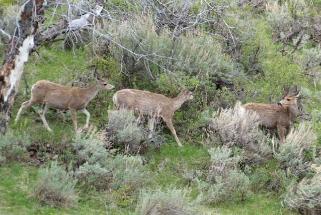| s/y Nine of Cups Fossil Butte National Monument, Wyoming May 2012 |
| More National Parks? More American Odyssey trip? Roadside Americana? Birds of North America? Wildflowers of North America? |
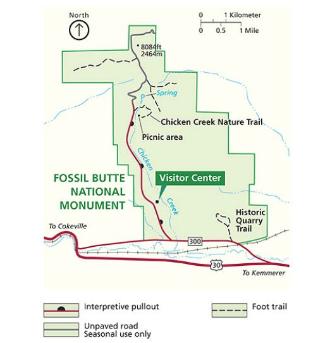
| Fossil Butte National Monument was established in 1972 "to protect and preserve a portion of the Green River and Wasatch formations which contain a unique fossilized assemblage of organisms that once lived in or around Fossil Lake, an ancient lake of Eocene age." The Monument's 8,198 acres is located in southwest Wyoming near the Utah border. As usual, we began at the Visitor's Center for a video orientation and a look at the exhibits. There's not much to see at the monument itself. |
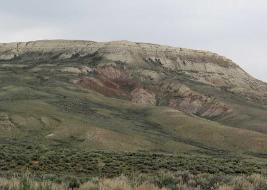
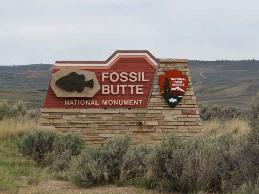
| The fossils of Fossil Lake are remarkable not only for their abundance, but also for the broad spectrum of species found here...plants, insects, reptiles, birds, mammals and over 20 kinds of fish...and their striking detail. Plant fossils adorned one exhibit wall; an intact, very large dragonfly; several fish fossils; a snake. |
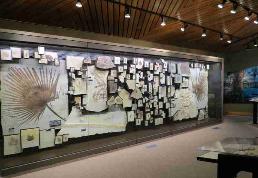
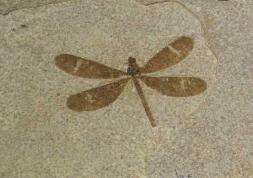
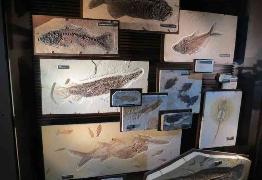
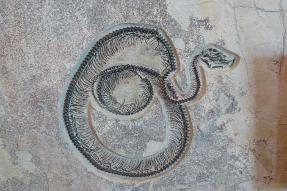
| Three great lakes existed in the area of Wyoming, Utah and Colorado some 50 million years ago. All are gone today, but they left behind a wealth of fossils in lake sediments that turned into rocks made up of laminated limestone, mudstone and volcanic ash. The fossils are among the world's most perfectly preserved remains of ancient plant and animal life. Unfortunately, much of the fossil-rich land is outside the monument boundaries and several shops along the road offered fossil-digging activities and fossils for sale. |
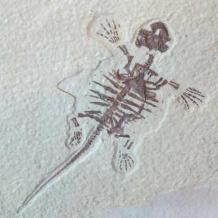
| Mule deer, not yet fossilized, wander the monument lands. |
| A turtle fossil |
| We weren't sure what to expect here so we weren't really disappointed to find there really wasn't much to see or do. Though we would agree that the paleontological work here is probably significant, it was an uninspiring place to visit. Seedskadee National Wildlife Refuge, our next stop, was much more fun and interesting. Want to visit this monument with us? |
